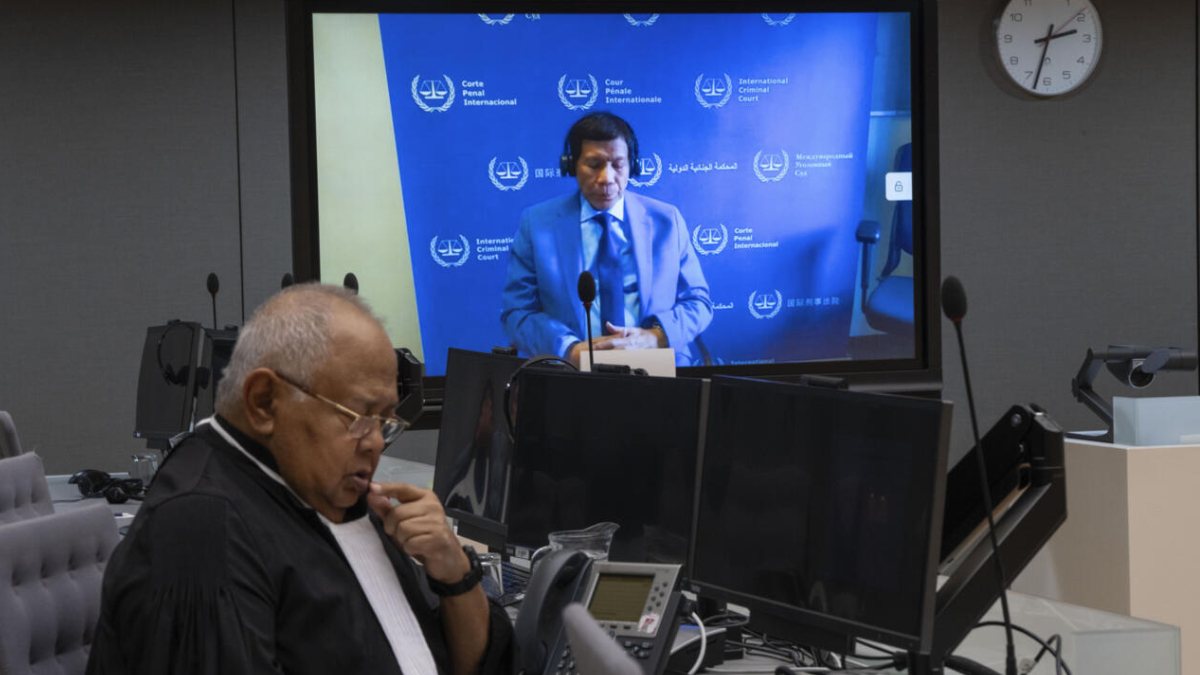The defense team of former Philippine President Rodrigo Duterte has asked the International Criminal Court (ICC) to narrow the number of victims who can take part in his ongoing trial for alleged crimes against humanity.
In a recent filing submitted to the ICC registry, Duterte’s lawyer, Nicholas Kaufman, urged the court to accept only Philippine national IDs or valid passports as proof of identity for victim participation, citing concerns over fraud and efficiency.
“Limiting the range of identity documents enhances the reliability of the identity verification process and significantly reduces the risk of fraud,” Kaufman stated in the submission dated April 7. He added that the use of varied documents “could lead to misidentification, double-counting, and the inclusion of false victims – issues that could trigger unnecessary and time-consuming litigation.”
He also suggested that in the absence of these IDs, the court should consider accepting government-recognized documents like those issued by the Social Security System, but only gradually.
The move sparked backlash from legal experts and advocates who said the proposal would unjustly exclude most of the victims of Duterte’s controversial anti-drug campaign, which led to thousands of deaths.
Kristina Conti, ICC Assistant to Counsel, described the proposal as “out of touch and harsh,” stressing that it would shut out a majority of the victims.
“Their insistence on the use of national IDs is unrealistic, with the obtention and issuance of the cards plagued with consistent issues of delay,” Conti said. “Their suggestion to produce passports is anti-poor, as only the socially mobile have the luxury to avail of cross-country travel.”
“Limiting the list of possible proofs of identity only discourages victims unnecessarily, almost heartlessly,” she added.
International law expert Joel Butuyan echoed the sentiment, saying Kaufman’s ID proposal fails to consider the reality in the Philippines, where national IDs and passports are often only accessible to those with resources.
“The victims’ families have already lost loved ones,” Butuyan said. “For them to be refused recognition as victims of the murderous Mr. Duterte, because of their lack of government-issued IDs, is to make them suffer grave injustice twice over.”
Duterte is facing ICC charges for alleged crimes against humanity tied to the Davao Death Squad and the Philippine police during his presidency, with cases spanning from November 2011 to March 2019. While official data reports around 6,000 deaths in the drug war, rights groups estimate the actual number may be as high as 30,000, most of whom were low-income Filipinos.





